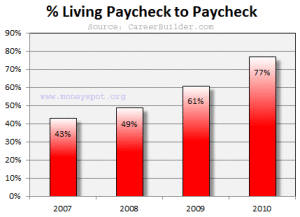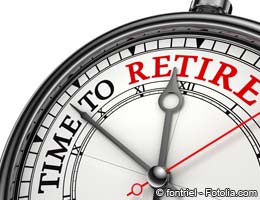 It is the time of year when we begin to consider filing our income taxes with the government. Some of us get it done as fast as possible to get it over with, while others will wait until the last day and run to the post office to send in their tax statements. With electronic systems now, many people use tax software programs such as Intuit to complete and file their taxes online. Submitting your tax report only takes minutes, and you are finished if you get a refund. Just wait for that check to arrive.
It is the time of year when we begin to consider filing our income taxes with the government. Some of us get it done as fast as possible to get it over with, while others will wait until the last day and run to the post office to send in their tax statements. With electronic systems now, many people use tax software programs such as Intuit to complete and file their taxes online. Submitting your tax report only takes minutes, and you are finished if you get a refund. Just wait for that check to arrive.
But what if you owe tax? You can still file online; however, you had better follow up with either a check in the mail with the envelope postdated on the deadline or send the money from your bank electronically. Is it better to get a refund or to owe money at tax time? The answer is somewhat complicated and really depends on the individual and how you manage your money.
Should You Owe Money to the Fed”s? or Tax Refunds
The writer believes it is better to owe money. After all, it is your money to start with, and why should the government use it when you can? If you are the type of person who has no problem coming up with the money when it comes time to file, then this approach is probably the one to take.
However, if you have a problem saving or you do not like surprises, then it is probably best that you allow a larger source deduction to take place and receive a refund each year. Some people even consider this approach of paying too much as a means of saving. They like to get a refund in April of every year, which they use to pay bills or go on a trip.
Besides, for some people, it is another way of saving money. Who doesn’t want to get a refund and some money in April or May from the government? It can be a nice little present that you can use for special activities or even saving for retirement. Here is a summary of what the options are and the benefits of each scenario:
Receive a tax Refund.
- The government has access to your money for up to a year
- Nice surprise
- Pay off bills when you get it
- Another way of saving money
Taxes Owing at Tax Time
- Did you save enough to pay your taxes, or will it be a hardship
- You had access to the money
- If you have loans, then you may pay less interest
- The government may assess a penalty if your late filing
- Government may tell you to pay more during the year
These are just a few issues to consider when considering a Tax Refund and whether you paid too much. The main thing that all of us need to focus on is completing our tax forms and getting them filed on time. Oh yes, if we owe money, we should pay it on time as well. At the time of writing, it is only the end of February, and we have almost two months to get this done, so don’t procrastinate. Complete your tax forms and file on time.
Also, if you have to pay a lot at tax time, the government may send you a notice reminding you to pay more during the year and reduce what you owe at the end of the year. While this is not the end of the world, it is a reminder that you must pay your taxes in regular monthly or biweekly installments.
If you have strong opinions on this subject, submit a comment. Well-written comments help our readers, especially if they present a different point of view. We will even approve comments with links for well-written comments. Our filter systems will likely catch all other comments.
For more tax saving ideas, click here.







